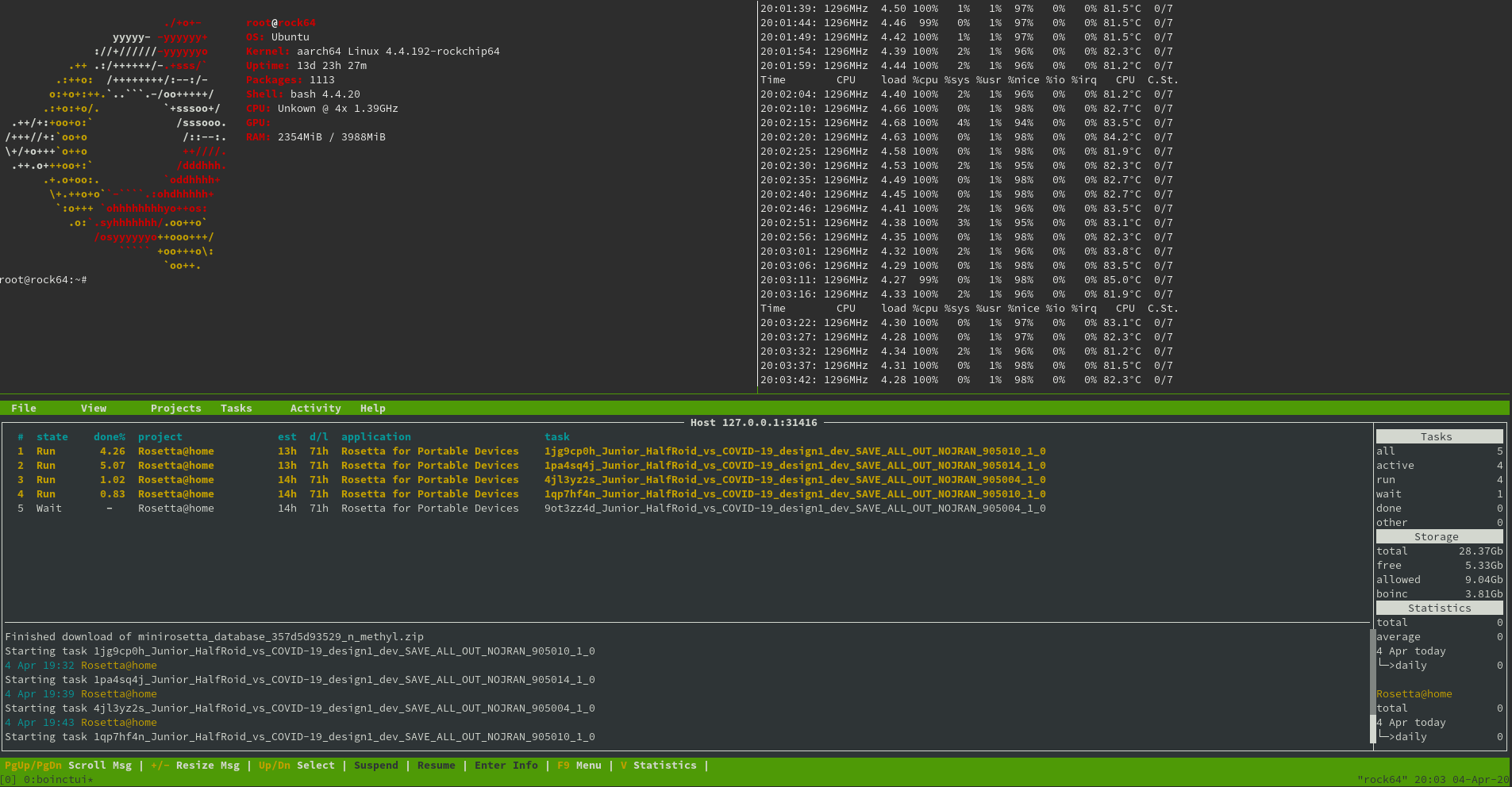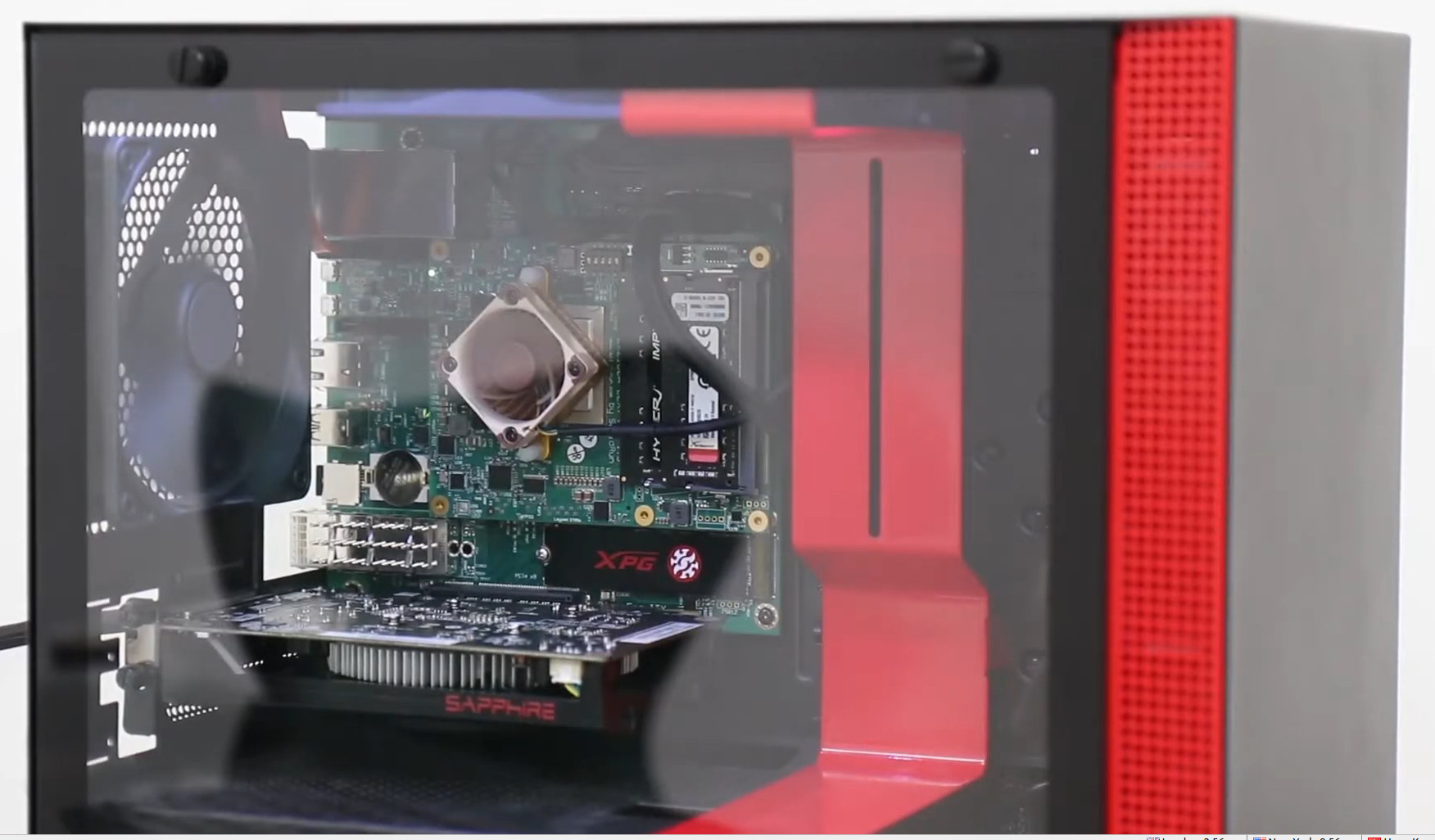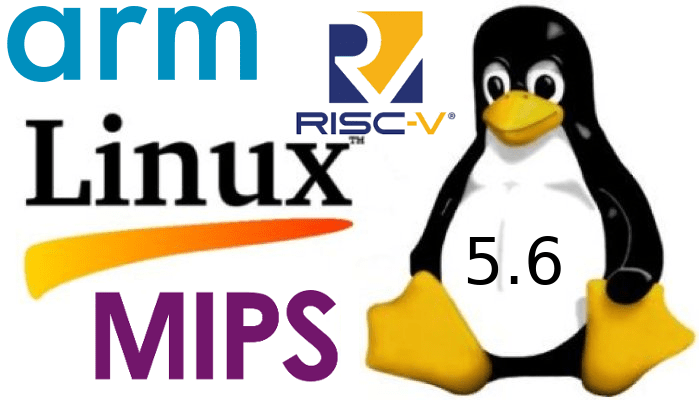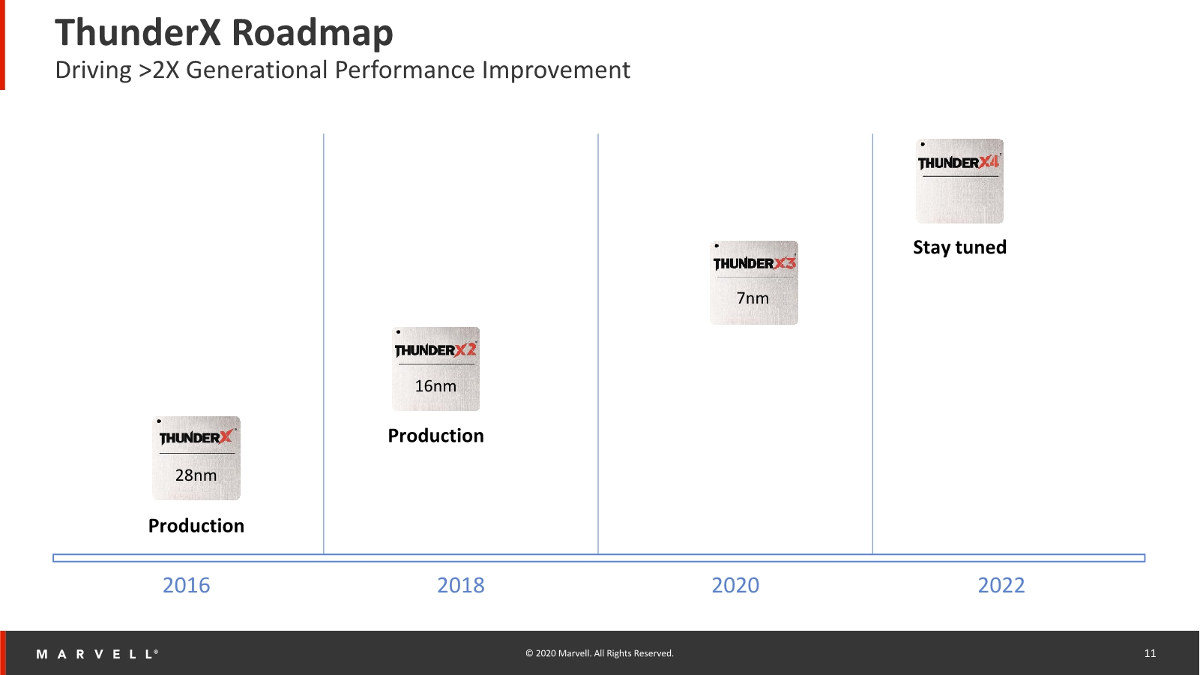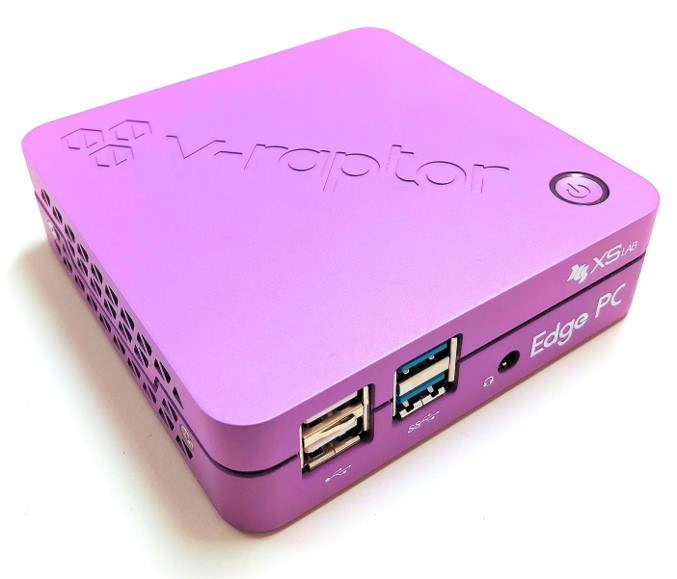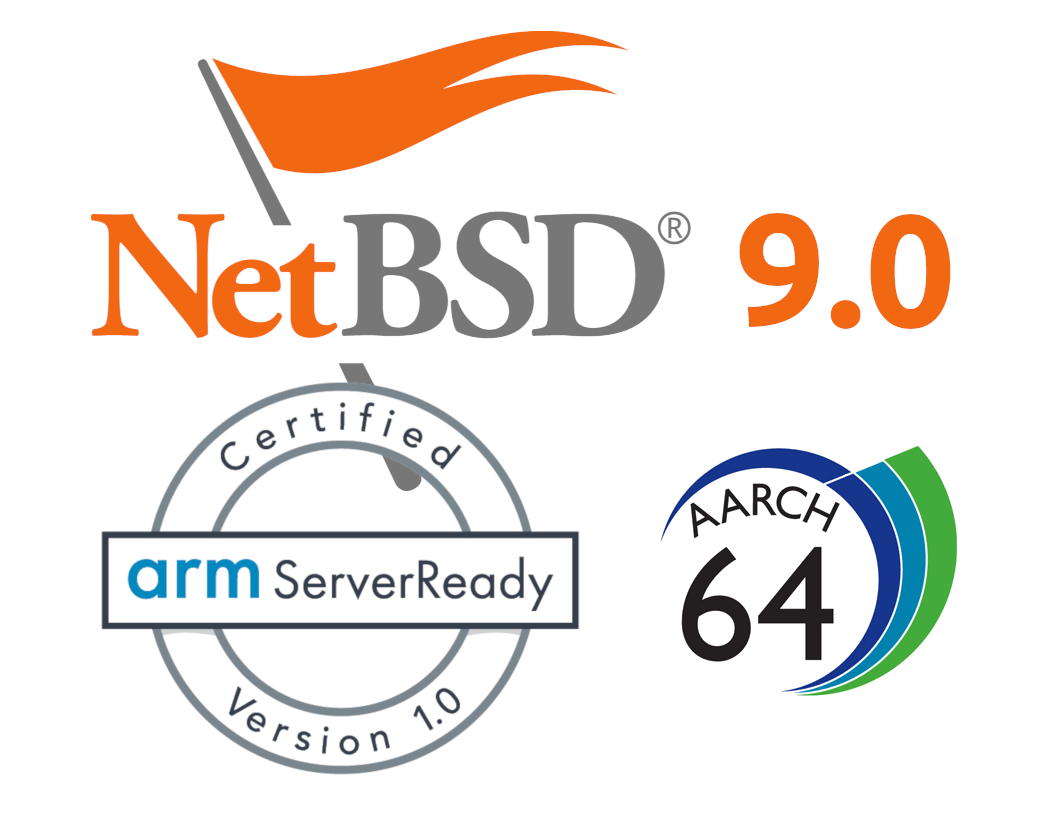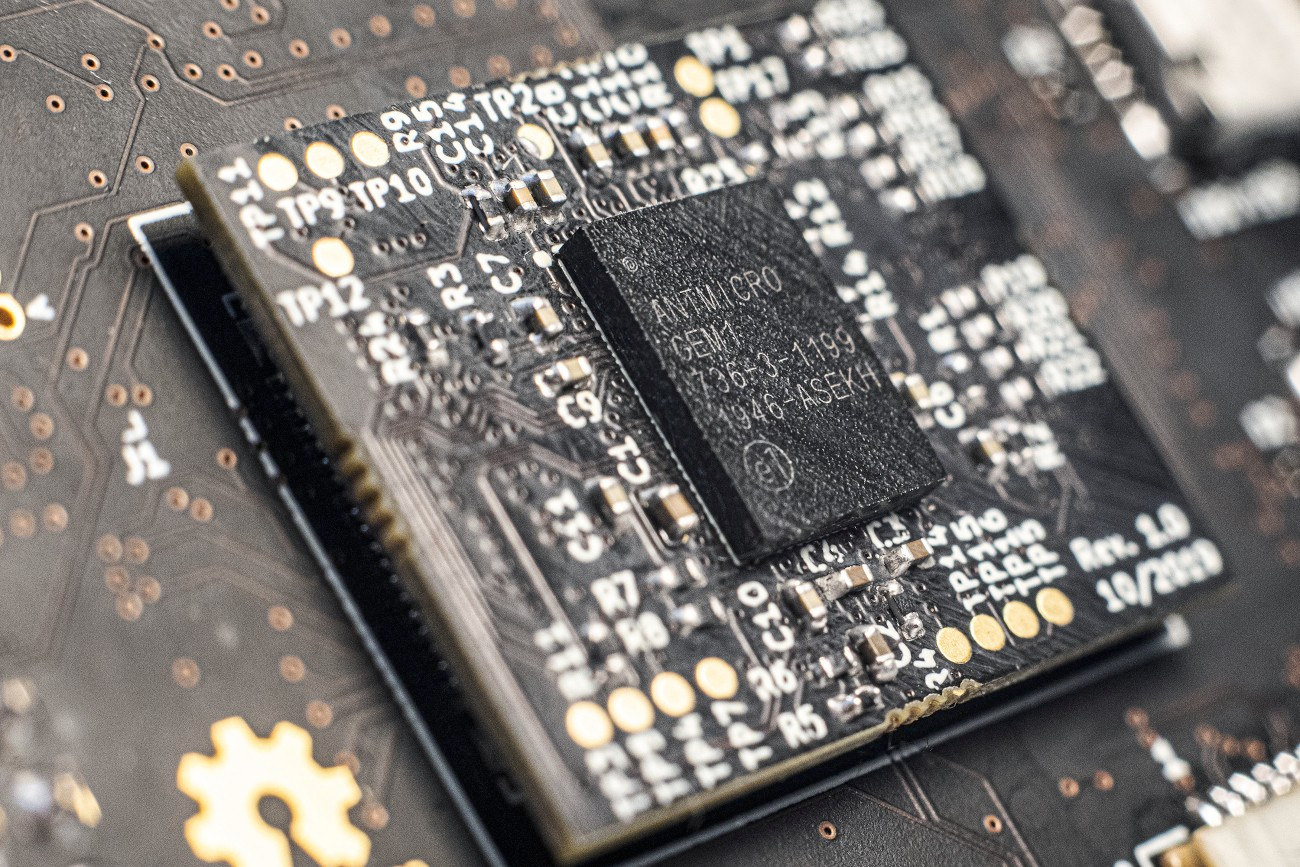Folding@Home and Rosetta@Home projects aim to perform biomedical research using the computing power of volunteers. Basically, you just need to install a program on your computer, and it will use idle computing power to perform complex calculations without slowing down your computer as long as you are not short in RAM. The projects are now working on COVID-19 to understand how SARS-CoV-2 protein is structured which could help find a cure. The programs have been available for Windows, Linux and Mac OS on 32-bit and 64-bit x86 targets for years, but very recently Rosetta@Home has been made available for 64-bit ARM targets so people can also run BOINC program on Arm Linux SBCs such as Raspberry Pi 4, NVIDIA Jetson Nano, or Rock64, or even powerful Arm servers to help with Rosetta@Home project’s COVID-19 research. As explained in an article on miniNodes, you’ll need a board with at least 2GB […]
This is what HoneyComb LX2K 16-core Arm Workstation Looks Like (Video)
Back in February 2019, while referring to Arm server, Linus Torvalds famously said: I can pretty much guarantee that as long as everybody does cross-development, the platform won’t be all that stable. Or successful. … If you develop on x86, then you’re going to want to deploy on x86, because you’ll be able to run what you test “at home” (and by “at home” I don’t mean literally in your home, but in your work environment). … Which in turn means that cloud providers will end up making more money from their x86 side, which means that they’ll prioritize it, and any ARM offerings will be secondary and probably relegated to the mindless dregs (maybe front-end, maybe just static html, that kind of stuff). SolidRun had already worked on products with NXP LX2160A 16-core Arm Cortex A72 processor and found out it could be a match to make a powerful […]
Linux 5.6 Release – Main Changes, Arm, MIPS & RISC-V Architectures
Linus Torvalds has just announced the release of Linux 5.6 on the Linux Kernel Mailing List: So I’ll admit to vacillating between doing this 5.6 release and doing another -rc. This has a bit more changes than I’d like, but they are mostly from davem’s networking fixes pulls, and David feels comfy with them. And I looked over the diff, and none of it looks scary. It’s just slightly more than I’d have preferred at this stage – not doesn’t really seem worth delaying a release over. So about half the diff from the final week is network driver fixlets, and some minor core networking fixes. Another 20% is tooling – mostly bpf and netfilter selftests (but also some perf work). The rest is “misc” – mostly random drivers (gpio, rdma, input) and DTS files. With a smattering of fixes elsewhere (a couple of afs fixes, some vm fixes, etc). […]
Marvell ThunderX3 96-Core, 384-Thread Armv8.3 Server Processor Targets Cloud and HPC Workloads
Cavium first unveiled their 48-core 64-bit Arm ThunderX server processor in 2014, before following up with ThunderX2 featuring up to 56 cores @ 3.0 GHz providing 2 to 3 more performance compared to the first generation. Since then, the company has been acquired by Marvell, and now the latter has just announced ThunderX3 third-generation server processor with up to 96 cores, 384 threads in a single socket. Marvell explains that while x86 servers were historically designed to handle many applications for several thousand users, the market has changed and now servers are becoming more specialized, and for example, given the task to run one application used by millions of users. This change in the market provides opportunities for Arm server processors that do not have legacy features and can be highly customized and optimized. ThunderX3 key features: Up to 96 custom-designed Armv8.3+ cores @ up to 3.0 GHz 4 threads […]
V-Raptor Edge RK3399 Mini PC Runs Xubuntu 18.04 with EBBR Support
We previously wrote about XS LAB’s V-Raptor server equipped with SocioNext SC2A11 24-core Arm Cortex-A53 SoC, but the Korean company has been working on a different kind of project with V-Raptor Edge mini PC powered by Rockchip RK3399 processor and running Xubuntu 18.04 with an Arm EBBR-compliant UEFI bootloader. The mini PC was designed to work as a thin client for Cloud PC VDI service from SK Broadband, but XS Lab appears open to expand its use to other applications depending on interest from distributors. V-Raptor Edge PC preliminary specifications: SoC – Rockchip RK3399 hexa-core processor with 2x Arm Cortex-A72 cores @ up to 1.8 GHz, 4x Arm Cortex-A53 cores System Memory – 4GB LPDDR4 Storage – 16GB eMMC flash or 32GB MicroSD card Video Output – HDMI 2.0 up to 4K, and DisplayPort via USB-C port; dual-independent display support up to 2x Full HD Audio – 3.5mm headphone jack, […]
Panfrost Open-Source Arm Mali GPU Driver Gets Experimental OpenGL ES 3.0 Support
Panfrost is the open-source driver being developed for Arm Midgard and Bitfrost GPUs. The first versions focused on support for OpenGL ES 2.0, but the more recent OpenGL ES 3.0 enables faster and more realistic rendering. The goods news is that Panfrost support for experimental OpenGL ES 3.0 has landed in Mesa according to a recent post on Collabora blog. Specifically, Panfrost now supports instanced rendering, primitive restart, uniform buffer objects, 3D textures, and multiple render targets (on Mali T760 and up) all of which are OpenGL ES 3.0 features. People who are not into graphics development may not know about the purpose of those features, but Alyssa Rosenzweig, a free software graphics hacker leading Panfrost, explains: … instanced rendering and primitive restart allow developers to write faster graphics applications, to render efficiently scenes more complex than possible in ES 2.0. … uniform buffer objects and 3D texture give developers […]
NetBSD 9.0 Released with Aarch64 Support, Arm ServerReady Compatibility
Yesterday, we wrote about Raspberry Pi 4 getting UEFI+ACPI firmware for Arm SSBR compliance allowing the board to run operating systems designed for “Arm ServerReady” servers out of the box. NetBSD 9.0 was just released on February 14, 2020, with support for Aarch64 (64-bit Arm) which had been in the works for a few years, and includes support for “Arm ServerReady” compliant machines (SBBR+SBSA). NetBSD 9.0 main changes related to hardware support: Support for AArch64 (64-bit Armv8-A) machines Compatibility with “Arm ServerReady” compliant machines (SBBR+SBSA) using ACPI. Tested on Amazon Graviton and Graviton2 (including bare metal instances), AMD Opteron A1100, Ampere eMAG 8180, Cavium ThunderX, Marvell ARMADA 8040, QEMU w/ Tianocore EDK2 Symmetric and asymmetrical multiprocessing support (big.LITTLE) Support for running 32-bit binaries via COMPAT_NETBSD32 on CPUs that support it Single GENERIC64 kernel supports ACPI and device tree based booting Supported SoCs Allwinner A64, H5, H6 Amlogic S905, S805X, S905D, […]
Antmicro GEM ASIC Leverages zGlue Technology to Quickly Bring Custom Arm/RISC-V SoC’s to Market
Introduced in 2018, ZiP (zGlue Integration Platform) chip-stacking technology aims to produce chips similar to Systems-in-Package (SiP) but at much lower costs and lead times. We first found it in a Bluetooth tracker featuring ZGLZ1BA custom chip manufactured with zGlue technology and integrating an Arm Cortex-M0 MCU, flash memory and sensors into a single package. But now the technology is back in the news with Antmicro announcing GEM chiplet-based ASIC last December. At the time of the announced the company’s GEM1 chip featured two Lattice iCE40 FPGAs with a MIPI CSI-2 switch, and they had started working on GEM2 chip combining a hard RISC-V processor and Lattice iCE40 FPGA. Those are so-called demonstrators chip as Antmicro customers will be able to easily and quickly design their own 6×9 mm chip(s) with RISC-V and/or ARM CPUs, FPGAs, sensors, radios and other functional elements to meet the requirements of their specific applications. […]


